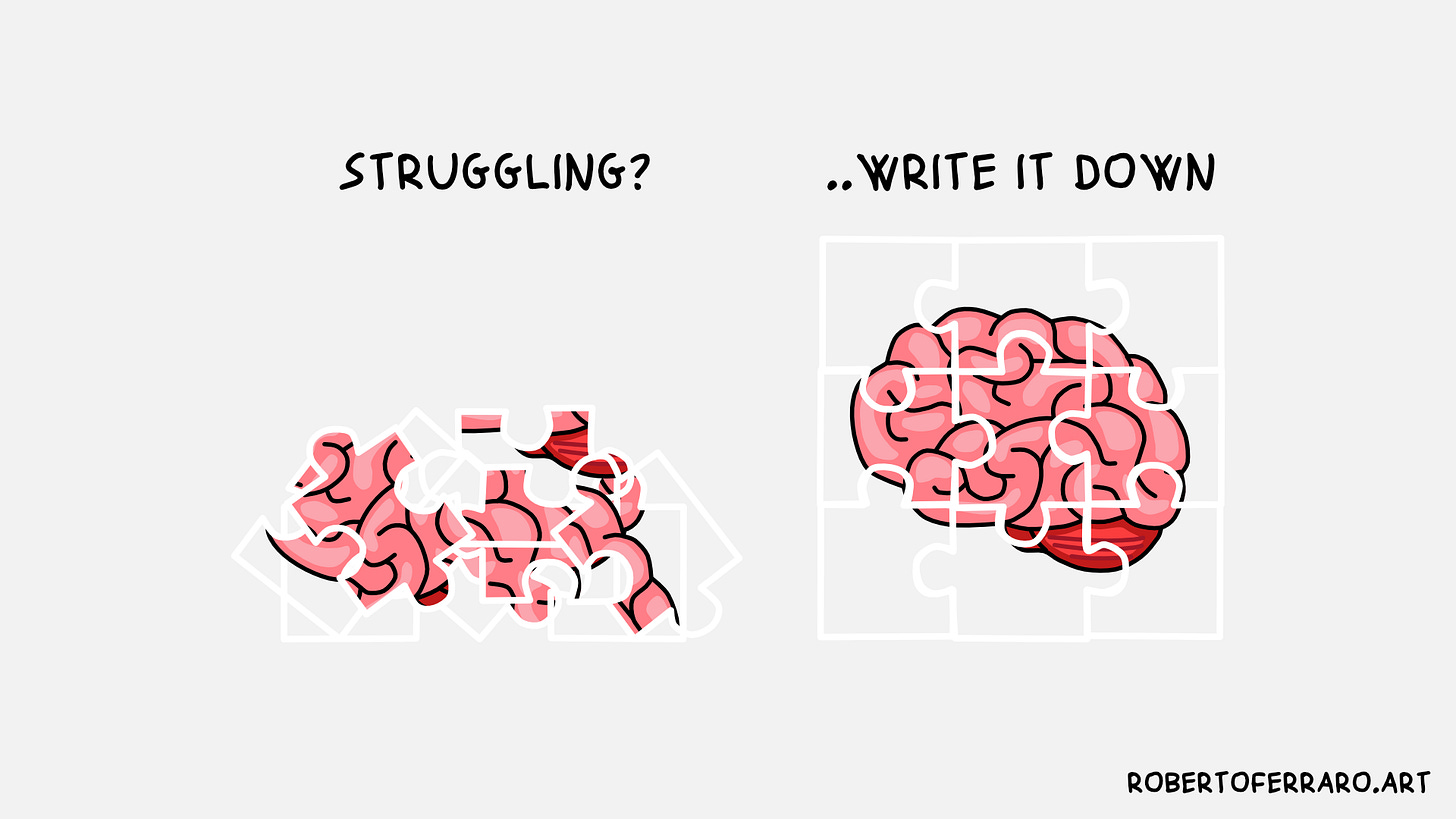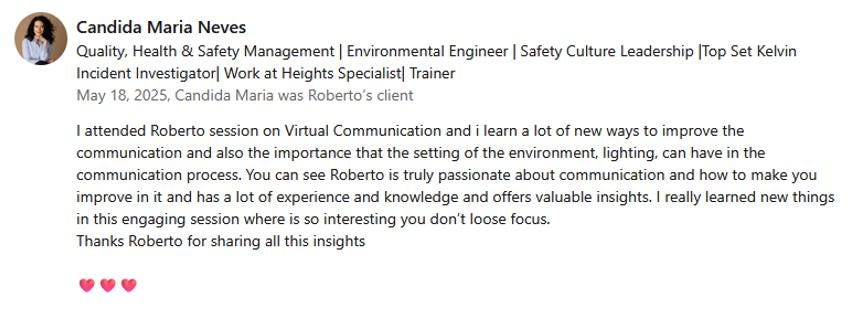One “must” for this week: Writing is thinking
I used to think writing was just reporting what I'd already figured out.
I was wrong.
When I sat down to write the details of my leadership masterclass, I thought I knew exactly what I wanted to say.
But as I started putting words on paper, writing forced me to see connections I'd missed.
It made me rethink how I wanted to deliver the session.
In the end, I understood the topic better than when I started.
This is why I'm also concerned about the trend to let AI write everything for us.
To be honest, I use AI tools daily. And the irony? I used AI to review this very text.
They're great for grammar, brainstorming, even beating writer's block.
But when I use AI to do the thinking for me, I lose the chance to really understand what I'm trying to say.
When we write we also discover new things.
And when we outsource that process entirely, we're not just saving time.
We're giving up the opportunity to think more clearly about our own ideas.
What connections might you be missing when you skip the effort of putting your own thoughts into words?
Personal development
To instantly sound more sincere, do this
Finding joy when you have limited free time
The arrival fallacy: why success is never enough
Self-authorship: the art of trusting your own authority
Worried about AI and jobs? Here’s how to make it work for you
Innovation
McKinsey technology trends outlook 2025
What Nokia can teach us about the AI era
With AI, everyone will be a manager of 50 AI agents
The 30-minute customer discovery that beats 50 interviews
Americans are pretty smug about tech leadership. They shouldn’t be.
Jules, Google’s asynchronous AI coding agent, is out of public beta
Leadership and management
Five onboarding questions AI should help every new hire answer
Outcomes & systems: from predicted goods to emergent cohesion
Six productive ways to deal with disappointment
New research on how to get workplace rituals right
One book
“Right Kind of Wrong: The Science of Failing Well” by Amy Edmondson.
See you next Saturday,
Roberto
I’m hosting a virtual communication workshop!
Spending hours in virtual meetings can be exhausting 😩
You know the feeling: wondering if people are paying attention, struggling to sound confident through the screen, or just wishing you could connect better in those tiny Zoom boxes.
I’ve been there too.
Since 2020, I’ve spent over 5,000 hours in virtual meetings. Along the way, I’ve learned that being effective online is about so much more than just having a great microphone or camera (and you know how I LOVE a good tech setup 🤖).
That’s why I’ve spent countless hours researching, practicing, and learning how to communicate in virtual settings: how to engage, connect, and leave a lasting impression.
My guiding question has always been, “how do I want the people in this meeting to remember me?”
Now, I want to share what I’ve learned with you, and in the process, continue learning myself.
I’m hosting a workshop to help you become a better communicator in virtual settings.
Whether you’re leading meetings, pitching ideas, or just trying to avoid “Zoom fatigue,” this 90-minute session is designed to give you practical tools you can use right away.
🎯 What’s in it for you?
Learn how to make a stronger, more memorable impression from the moment you join a call.
Discover how to use your voice, gestures, and presence to keep people engaged.
Avoid common pitfalls that can derail even the best-prepared sessions.
And yes, we’ll talk about the all-important technical setup, too!
It’s going to be interactive, fun, and useful, and I’d love for you to join! 🤩
What people said last time
In each session, the spots are limited for better interaction, so don’t wait!
🗓️ September 2nd 16:00 to 17:30 CET






Another great graphic, thanks. I start the day with reading, then I write in my journal for ten minutes. That clears away the debris and I'm ready to start.
I read years ago that the difference between a wish and a plan is writing it down. It does make a difference.